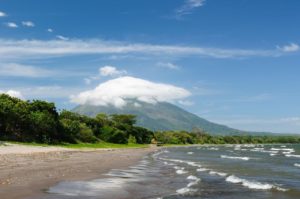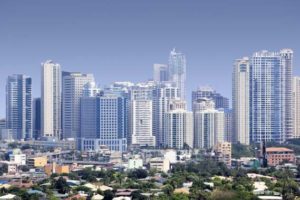Costa Rica: Dependent status update
In 2020 a law legalizing same-sex marriage will come into effect. In preparation, the government of Costa Rica has confirmed the following:
Same-sex spouses or unmarried partners who have a legal relationship in their home country will now be considered as dependent and can apply for dependent permits in Costa Rica. This applies to both foreign nationals and Costa Rican citizens.
These decrees are currently temporary. It is expected that the law will be passed by the Costa Rican Congress in 2020. Once passed, the immigration authorities must implement the permanent decrees.
To apply for dependent status, one of the following three documents is required:
- Legalized marriage certificate
- Legalized declaration of civil union
- Any civil partnership document recognized in the home country
Not only is it possible to apply for dependent status, it is also possible for individuals to change their immigration status.
This summary was prepared using information obtained from the immigration authorities in Costa Rica (in Spanish).
Disclaimer: The above information is provided for general information purposes only and should not be construed as legal advice. If you have any further inquiries regarding the applicability of this information, please contact Roberta Carnaccini, Global Operations Director, Immigration.
New Zealand: Stricter enforcement of Visit Pass rules
Following public consultation, changes are set to be implemented in August, 2019. Regional skills shortage lists may be introduced as early as April.
The proposed changes will affect all employers in New Zealand supporting work visa applications and individual applications for employer-supported visas.
Proposed changes
A gateway framework will replace all employer-supported work visa categories. Three stages must be passed before a work visa can be approved:
Employer check
This involves a mandatory accreditation of all employers supporting work visa applications. Different categories of accreditation are proposed, including standard, labor hire and premium accreditation.
Job check
To test the labor market the following is proposed:
- Regional skills shortage lists
- Industry sector agreements (e.g. for hospitality)
- No labor market testing for salaries under NZD 101,046
- A salary threshold increase from NZD 55,000 to NZD 78,000 for employers with premium accreditation looking to support employees with “work to residence” visas
Individual check
The final stage will assess the identity, character, health, qualifications and experience of the work visa applicant.
To learn more about the regional skills shortage lists, remuneration levels and the Australian and New Zealand Standard Classification of Occupations (ANZSCO) challenges, click the link provided below.
This summary was prepared using information obtained from NZ Gov website.
Disclaimer: The above information is provided for general information purposes only and should not be construed as legal advice. If you have any further inquiries regarding the applicability of this information, please contact Debbie Beynon, Regional Immigration Manager, APAC.
Philippines: Special Work Permit and Provisional Work Permit restrictions
The Bureau of Immigration has published additional guidelines imposing new requirements and restrictions related to Special Work Permits (SWP) and Provisional Work Permits (PWP). These changes are to ensure that work permits are issued to foreign nationals whose jobs could not be performed by Filipinos.
What is the change?
Foreign nationals will be monitored to ensure compliance with the maximum validity period of six months in a 12-month period. Work permits will not be issued to the following foreign nationals:
- Manual workers or foreign nationals who will be employed as:
- Construction workers
- Cashiers
- Janitors
- Carpenters
- Other blue-collar jobs
Professionals regulated by the Professional Regulation Commission (PRC) will not be issued work permits without PRC approval and will be subject to more administrative steps in the authorization process.
This summary was prepared using information obtained from Bureau of Immigration press release.
Disclaimer: The above information is provided for general information purposes only and should not be construed as legal advice. If you have any further inquiries regarding the applicability of this information, please contact Debbie Beynon, Regional Immigration Manager, APAC.
Saudi Arabia: Companies with a sufficiently high Saudization
The Ministry of Labor and Social Development (MLSD) in Saudi Arabia announced that companies with a sufficiently high Saudization (Nitaqat) rating are able to reimburse or waive expat fees for 2018.
Nitaqat is the Saudization system whereby companies are grouped by industry sector and company size, then ranked according to their percentage of local workers (Premium, High Green, Medium Green, Low Green, Yellow and Red).
Key considerations
Employers who have maintained a Nitaqat rating of green or platinum for the last 12 months will qualify for a refund. They will qualify for a waiver if they have not paid.
Employers who have red and yellow Nitaqat categories will qualify for reimbursement if they recruit a higher proportion of Saudis and improve their rating.
This summary was prepared using information obtained from the Philippines Immigration Management.
Disclaimer: The above information is provided for general information purposes only and should not be construed as legal advice. If you have any further inquiries regarding the applicability of this information, please contact Michele Giordani, Regional Immigration Manager, EMEA.
United States: Form I-539 revised
As of March 11, 2019, USCIS will only accept the newly revised Form I-539 to extend/change non-immigrant status. USCIS will reject any Form I-539 with an edition date before December 23, 2016.
Form I-539 changes
- Every co-applicant on the primary applicant’s form must submit and sign a separate Form I-539A. Parents or guardians may sign on behalf of children under 14 or any co-applicant who is not competent to do so.
- Every applicant and co-applicant must pay an US$ 85 bio-metrics service fee (excluding certain A, G, and NATO non-immigrants).
- Every applicant and co-applicant will receive a bio-metrics service appointment containing their individual receipt number. Bio-metrics service appointments will be scheduled at Application Support Centers.
Key considerations
USCIS will reject any Form I-539 that is missing any of the required signatures or bio-metrics fees, including those required for Form I-539A.
This summary was prepared using information obtained from U.S. Citizenship and Immigration Services.
Disclaimer: The above information is provided for general information purposes only and should not be construed as legal advice. If you have any further inquiries regarding the applicability of this information, please contact Roberta Carnaccini, Global Operations Director, Immigration.
We track policy changes in over 120 countries. Find out how we can help you in this short video.




